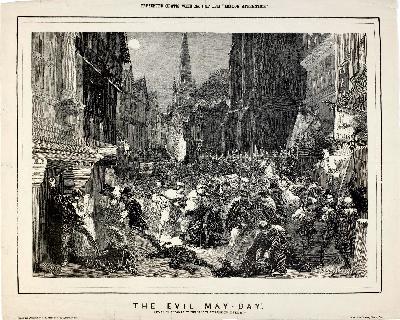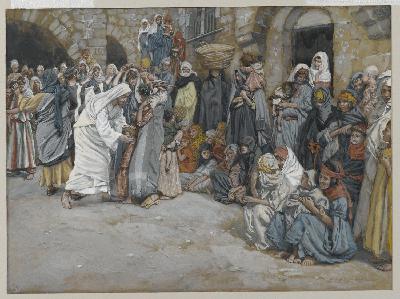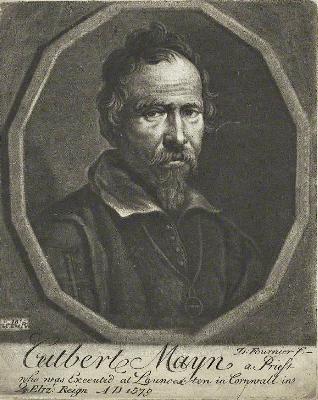Who Is My Neighbor?
Update: 2025-11-14
Description
Fellow TCT contributor Francis Maier warmed my heart last September with a favorable mention of Alasdair MacIntyre's Dependent Rational Animals. This work is one of our most important recent philosophers' most important contributions to moral philosophy. I've taught it several times in a course on human nature.
As with all great books, it reveals more truth with each new reading. This semester, I finally realized that the work as a whole is a brilliant example of the use of philosophy as human reason to understand a truth given in revelation and faith.
MacIntyre, who died earlier this year, began his career as a Marxist before "seeing the light" of Aristotle and St. Thomas Aquinas. He eventually entered the Church. He understood well the complementarity of faith and reason that Aquinas infuses throughout his work. But MacIntyre relied on human reason, rather than revelation, as the ground of his work, knowing the truth to which that reason should lead.
MacIntyre begins the book by claiming that humans are animals, and that the differences between humans and non-human animals are narrower than many philosophers have claimed. He surveys scientific studies that have investigated the behavior of higher non-human animals, especially dolphins.
Such animals, MacIntyre judges, have something like reasons for acting that many philosophers have attributed only to humans. They exhibit a pre-linguistic kind of reason.
This reminds us that we are always animals with bodies, into which the human soul is placed and to which it is joined. We never escape our animal nature no matter how intellectual or spiritual we become. We all must control our bodies and choose our reactions to fear and desire, pain and pleasure. That's what the habits of the moral or natural virtues permit.
Great contemplatives are able, through prayer and reasoned discipline, to subdue the body's proclivities and demands to a degree that opens them to non-physical realities and God Himself. But their animal bodies will still die, as Christ in His human nature suffered bodily on the Cross.
Aristotle observed, and Aquinas developed, the notion that some non-human animals seem to exhibit a kind of practical wisdom or prudence in making choices. Our specific human rationality lies in our capacity to reflect upon and revise our reasons for acting in ways that non-human animals cannot, and thereby to consider alternative futures and different courses of action. That exercise requires the full language capacity that pre-linguistic animals lack.
We ourselves are born pre-linguistic, and the moral concerns that occupy us stem in many ways from our pre-linguistic concerns.
MacIntyre argues that at various times of our lives - pre-linguistic infancy for all, and for many, periods of illness or injury, or old age - we are all dependent on others for life itself. During those times, we incur a debt to others that, because it stems from receiving life, is beyond all measure.
We repay that debt as we become "independent moral reasoners," capable of evaluating our own reasons for acting independently of those who, in family and community, aided us in achieving that fully human condition of excellence or virtue. We gain that through the activities that we undertake with others, such as family life, practices such as playing chess or a sport, or working with others for a common good. Those practices have their "internal goods," which we learn to seek with others.
To discharge the debt that we take on during times of dependence, we as independent moral reasoners need others who depend on us. We can't be fully human without depending on others and having others depend on us.
This leads MacIntyre into an extension of the work of Aristotle and Aquinas. He explains that we need virtues of "acknowledged dependence," according to which we accept our own dependence on others and their dependence on us. These are virtues of giving and receiving, and they should orient the family and political o...
As with all great books, it reveals more truth with each new reading. This semester, I finally realized that the work as a whole is a brilliant example of the use of philosophy as human reason to understand a truth given in revelation and faith.
MacIntyre, who died earlier this year, began his career as a Marxist before "seeing the light" of Aristotle and St. Thomas Aquinas. He eventually entered the Church. He understood well the complementarity of faith and reason that Aquinas infuses throughout his work. But MacIntyre relied on human reason, rather than revelation, as the ground of his work, knowing the truth to which that reason should lead.
MacIntyre begins the book by claiming that humans are animals, and that the differences between humans and non-human animals are narrower than many philosophers have claimed. He surveys scientific studies that have investigated the behavior of higher non-human animals, especially dolphins.
Such animals, MacIntyre judges, have something like reasons for acting that many philosophers have attributed only to humans. They exhibit a pre-linguistic kind of reason.
This reminds us that we are always animals with bodies, into which the human soul is placed and to which it is joined. We never escape our animal nature no matter how intellectual or spiritual we become. We all must control our bodies and choose our reactions to fear and desire, pain and pleasure. That's what the habits of the moral or natural virtues permit.
Great contemplatives are able, through prayer and reasoned discipline, to subdue the body's proclivities and demands to a degree that opens them to non-physical realities and God Himself. But their animal bodies will still die, as Christ in His human nature suffered bodily on the Cross.
Aristotle observed, and Aquinas developed, the notion that some non-human animals seem to exhibit a kind of practical wisdom or prudence in making choices. Our specific human rationality lies in our capacity to reflect upon and revise our reasons for acting in ways that non-human animals cannot, and thereby to consider alternative futures and different courses of action. That exercise requires the full language capacity that pre-linguistic animals lack.
We ourselves are born pre-linguistic, and the moral concerns that occupy us stem in many ways from our pre-linguistic concerns.
MacIntyre argues that at various times of our lives - pre-linguistic infancy for all, and for many, periods of illness or injury, or old age - we are all dependent on others for life itself. During those times, we incur a debt to others that, because it stems from receiving life, is beyond all measure.
We repay that debt as we become "independent moral reasoners," capable of evaluating our own reasons for acting independently of those who, in family and community, aided us in achieving that fully human condition of excellence or virtue. We gain that through the activities that we undertake with others, such as family life, practices such as playing chess or a sport, or working with others for a common good. Those practices have their "internal goods," which we learn to seek with others.
To discharge the debt that we take on during times of dependence, we as independent moral reasoners need others who depend on us. We can't be fully human without depending on others and having others depend on us.
This leads MacIntyre into an extension of the work of Aristotle and Aquinas. He explains that we need virtues of "acknowledged dependence," according to which we accept our own dependence on others and their dependence on us. These are virtues of giving and receiving, and they should orient the family and political o...
Comments
In Channel
























